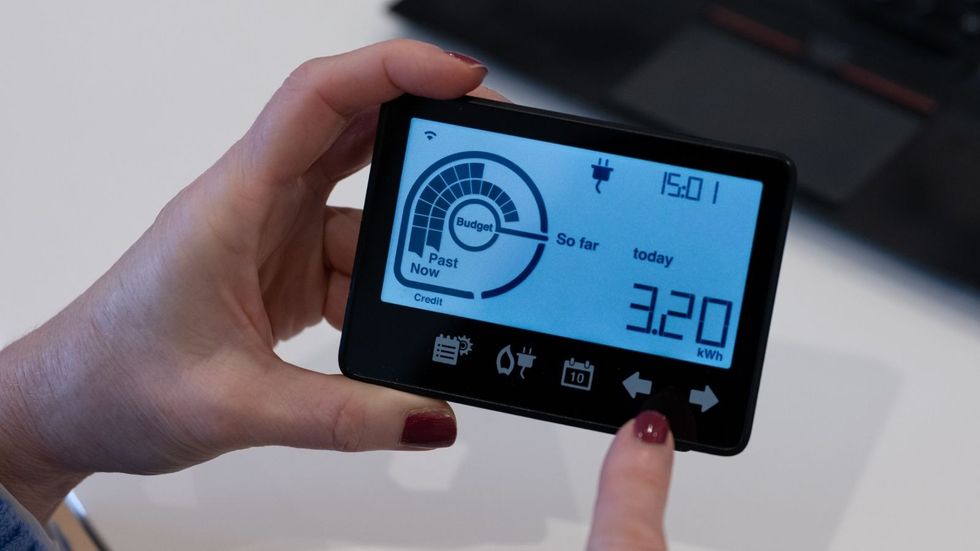Martin Lewis has urged Britons to take an energy smart meter reading this week, to avoid being overcharged
GETTY
The new energy price cap will come into effect from April 1
Don't Miss
Most Read
Trending on GB News
Martin Lewis has urged Britons to take an energy smart meter reading this week, to avoid being overcharged.
Energy bills are set to drop by 12 per cent for around 90 per cent of households on a standard variable tariff from Monday April 1.
This means on average for every £100 someone currently pays, they'll pay £88 from Monday.
The money saving expert said the best way to ensure a bill is accurate is to take a reading a few days before the price cap drops and a few days after.
The energy price cap controls what most households in England, Scotland and Wales pay for energy.
This will be set at £1,690 per year for a typical household who use electricity and gas and pay by Direct Debit from April 1 to June 30, 2024. However, people who use more energy will pay more.

The energy price cap controls what most households in England, Scotland and Wales pay for energy
GETTY
This is £238 per year lower than the current price cap set between January 1 to March 31, 2024 at £1,928.
Taking a meter reading this week should prevent suppliers from determining bill prices that aren't accurate to one’s usage.
An accurate reading is essential in making sure customers do not pay more than they should and can help with any bill disputes that may arise.
Writing in Money Saving Expert’s Money Tips newsletter, Mr Lewis explained how to “protect your pocket” with the upcoming energy price changes.
He urged those without a working smart meter to “give an up-to-date meter reading within a few days either side of the rate change”.
By taking regular readings, it can reduce the risk of one’s supplier estimating they've used more at the current higher rate than they have.
Those with a working smart meter do not need to do anything.
How to give a meter reading
For extra peace of mind, Mr Lewis suggested that customers should email themselves a time-stamped picture of their smart meter.
Then they can log in to their online account or to a web form on their energy provider's site to enter in the readings they took.
Most providers will also allow customers to send readings via text message, or through mobile apps such as WhatsApp.
Customers can also call them up, and most have automated telephone lines where they can give the readings.
This helps people save time, by not having to join a phone queue or clogging up the lines for those that need help.
The money saving expert did warn that the 12 per cent fall is an average and it can vary wildly depending on location and usage.
In the past people who pay for their energy using a prepayment meter have paid more for standing charges than people who pay by Direct Debit. However, from April, Prepay standing charges have been lowered match Direct Debit.
LATEST DEVELOPMENTS:
People on a prepayment meter who get their electricity and gas from the same supplier will save around £49 per year (£52 including VAT), but people who pay by Direct Debit will pay an extra £10 per year.
With the price cap dropping, many customers may be considering a fixed tariff at the lower rate.
Mr Lewis' rule of thumb for when it's worth switching is: “Unless you can fix at 18 percent LESS than the current (January to March) Price Cap, it’s predicted you’ll pay more than staying on the Price Cap.
“Yet E.on's Pledge tariff, open to all on Direct Debit (who’ll have or get a smart meter) is basically a three per cent cheaper Price Cap, so compared to that it’d need to be 21 per cent cheaper.”
Customers are urged to shop around to see what the best energy deal for them is as there is no certainty with deals available.
Martin Lewis is the Founder and Chair of https://MoneySavingExpert.com .







